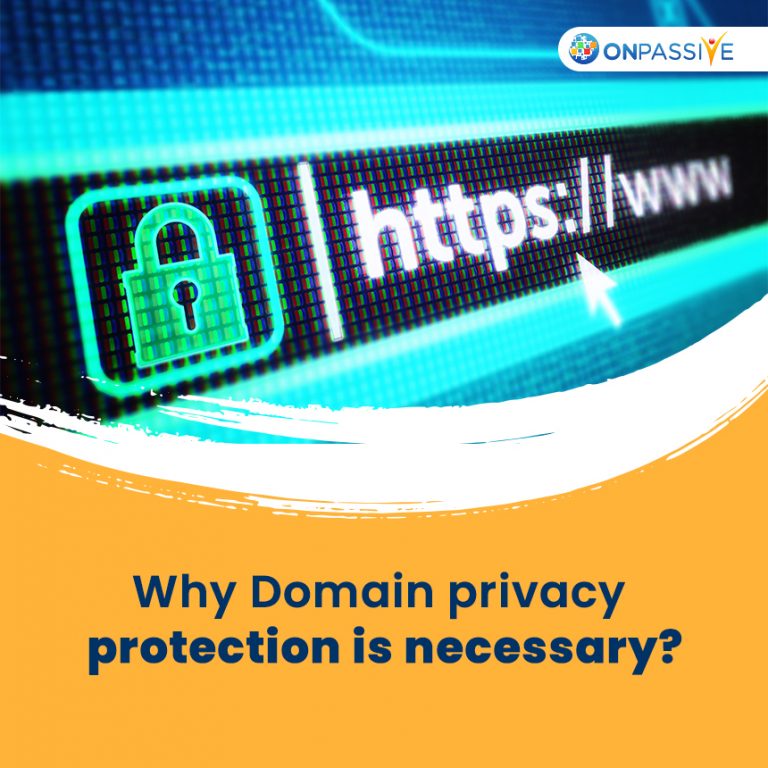
With information readily available everywhere, data has become extremely important, especially in IT companies as it enhances the daily workflow, enabling them to provide better customer service. However, with the rise of cyber-attacks, data breaches and misuse of personal information, domain and website protection have become more important to companies than ever.
Establishing an online presence is a crucial aspect of any Business Marketing Strategy.
While focusing on improving their online presence, visibility and high ranking in search engines; businesses should also be conscious of Cyber threats and protect the website from hackers.
While new and more effective security features emerge regularly for websites, hackers constantly update themselves and reinvent new ways to navigate around these security features and attack vulnerable websites.
What is Website Security?
Also known as cybersecurity, website security is an action taken to ensure that the data within the website is not exposed to cybercriminals and prevent the exploitation of the website and website data in any manner.
Website security refers to the process of shielding your website from attacks and cyber threats. Opting for website security protects your company’s website from:
DDOS Attacks- These attacks slow down your company’s site or crash it completely by denying access to visitors trying to visit your site and make it inaccessible.
Malicious Software- One of the most common practices used by cybercriminals to steal data allowing unauthorized access to your website.
Vulnerable Exploits- This involves extracting data from your website and attacking it from weaker areas.
Blacklisting- Your website can be removed from search results if a search engine finds malware in it, reducing your online visibility completely.
Having an enhanced website security shields your website from:
l Spams and malicious redirects.
l Session hijacking.
l Stolen data.
Critical Security Features for Website Protection
The use of SSL certificates
An SSL certificate is a digital certificate that provides an encrypted connection and authentication for a website. Many browsers display a green lock from an SSL protected link when a website is viewed. SSL is critical for any website when passing personal and sensitive information. This is one of the most essential security features for a website.
Create Regular Backups
A good backup system adds great value to your company’s website. Anything can happen to a website’s data in today’s world. Therefore, it is ideal to have a solid backup method for your files.
A proper backup can restore your site and files safely before something drastic happens. Malware, hacks or even accidental coding can be reversed with just a few clicks with regular backups.
Keep Software Up to Date
Keeping the current apps up to date is another essential security feature for businesses. Always make sure that the automatic update feature is installed, and it also updates the additional features like plugins.
When the website developers improve security features of the software, without these updates the website is at risk of being attacked with new threats which put your business reputation, customers and profitability at risk.
Protect your Domain Registration Information
Businesses should protect their data and contact details and information from unauthorized people in Whois records. Investing in this service keeps your domain registration information private and protects your website from identity theft.
Without this protection, data miners can easily grab your personal information and add you to unsolicited junk mail.
Create Complicated Passwords
One of the biggest cornerstones of website security is having a secured password. The more complicated your password is the less chance of hackers breaking your website.
Make sure your passwords are stored in encrypted values on the website management side of things. Frequent changing of passwords also helps to secure your website.
Benefits of having a secure website
The significant advantages of having a secure website are:
- More visits to your website.
- Search engine optimization.
- Eliminates malware possibility.
- Builds confidence and shows authenticity.
- Increases sales and enhances productivity.
What is Domain privacy protection?
The personal data of most companies are susceptible to data breaches and cyber-attacks, no matter how careful they are. Domain privacy protection provides a layer of safety to protect a company’s private website information and data.
When a company is registering its domain name, personal information is stored in the Whois database. A company’s personal information such as phone number and address, domain name and Internet Protocol (IP) address is stored in the Whois dictionary.
Domain hijackers can infiltrate the Whois database based on your domain name and capture all your private data and personal information. Therefore, domain registrars offer domain privacy protection, to secure your data from unauthorized people in the Whois records. Investing in this service helps to keep your company’s data private and protect you from data and identity theft.
Reasons why Business organizations need Domain privacy protection
Companies or businesses can opt for services provided by domain registrars and take advantage of this privacy protection service for the following reasons:
- Protection from spam calls and emails.
- Personal information protection.
- Potential for competitive insights.
- Selling of personal information.
- Protection from unwanted internet traffic.
Any company’s data can be gathered by hackers by accessing the information that is used to register the domain name of the business website. Therefore, Domain privacy protection is critical for any business.
Conclusion
With the constantly growing tech space, securing your website and personal information is a critical and constant task for your business. Constantly monitoring vulnerabilities and addressing them involves this process and helps minimize the risk of your website being hacked.



Rod Willis
3 years ago